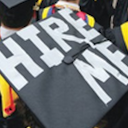
The individual acts of violence portrayed in Jai Bhim Comrade appear not as aberrations from a tolerant pluralism but as part of a continuum of persecution, which permeates India’s cities as much as its villages.

Some young feminists are becoming full-spectrum doulas. As Jennifer Baumgardner says, “if you’re placing a baby for adoption you need and deserve support, if you’re having an abortion you need and deserve support, and if you’re going to birth the baby and raise it you need and deserve support.”

In the most recent issue of Dissent, Carole Joffe looks at the legacy of Roe v. Wade. Read her piece, as well as comments by Linda Gordon, Zakiya Luna, and Ruth Rosen.

I drew the line at publicly aligning myself with “the abortion issue,” Roe v. Wade, and the institutional white feminists popularly associated with the ruling. Doing so seemed like socio-political suicide in my highly segregated, decidedly African American slice of Philadelphia community life.

Much of what we now take for granted as common sense was once espoused by people who often were widely considered left-wing radicals.

Our bodies’ need for a short respite was pitted against our residents’ immediate bodily needs. Either choice we made, we blocked out something deeply human—either our care for our own bodies or our care for others. Caring should not feel like stealing time.

On August 16 of last year, South African police shot dead thirty-four mineworkers at the Lonmin Platinum mine in Marikana. People in South Africa are referring to this as the “Marikana moment,” a turning point where the realities of South …

Here is the difficulty with drones: the technology is so good that the criteria for using it are likely to be steadily relaxed. That’s what seems to have happened with the U.S. Army or with the CIA in Pakistan and Yemen.

Facebook was, in its early days, powered by women—or rather, by photographs of women, and by the unceasing clicks of men and of women seeking out photos of women.

While we debate the travails of some of the world’s most privileged women, most women are up against the wall. And yet for much of mainstream feminist discourse, it’s as if the economy hasn’t shifted, or as if there’s nothing about it worth examining from the standpoint of gender.

The “end of men,” “having it all,” the “richer sex” — women, it would seem, have finally arrived. But this celebration is one part toast to the wealthy exceptions, and one part nonsense.

One of Robert Bork’s last acts was to bless Google’s near-monopoly over search advertising as “pro-competitive” in an October 2012 white paper commissioned by Google. On Thursday the Federal Trade Commission showed, once again, Bork’s enduring influence.

Next time you hear a pundit say that to preserve America’s competitiveness or dynamism, we must replace the liberal arts with something more “practical,” take a second to check what they studied.

In a meeting between President Ronald Reagan and Canadian Prime Minister Brian Mulroney, when the friends were both in high office, the president asked Mulroney, “Brian, did you read that article in the Reader’s Digest that trees cause pollution?”

Dissent contributors on Michigan’s right-to-work law: Colin Gordon looks at the faulty economics, Richard D. Kahlenberg and Moshe Z. Marvit tell the ugly racial history of the idea, and Michael Kazin reminds us why people would miss unions if they vanished.



















